Northumbria-Northwestern Polytechnical University Joint Research Forum
Theme 1. MEMS and Microsystems
Proposed Agenda
Date and Time: 9thJune 2022, UK time 9:00 am-1:00pm (China time 4:00pm-8:00pm)
Location: Virtual(Zoom Link):
https://us02web.zoom.us/j/86107014979?pwd=cWVUUTRrMzNKR2dUSHRFMjFCcjg2Zz09
Meeting ID: 861 0701 4979
Password: 2022
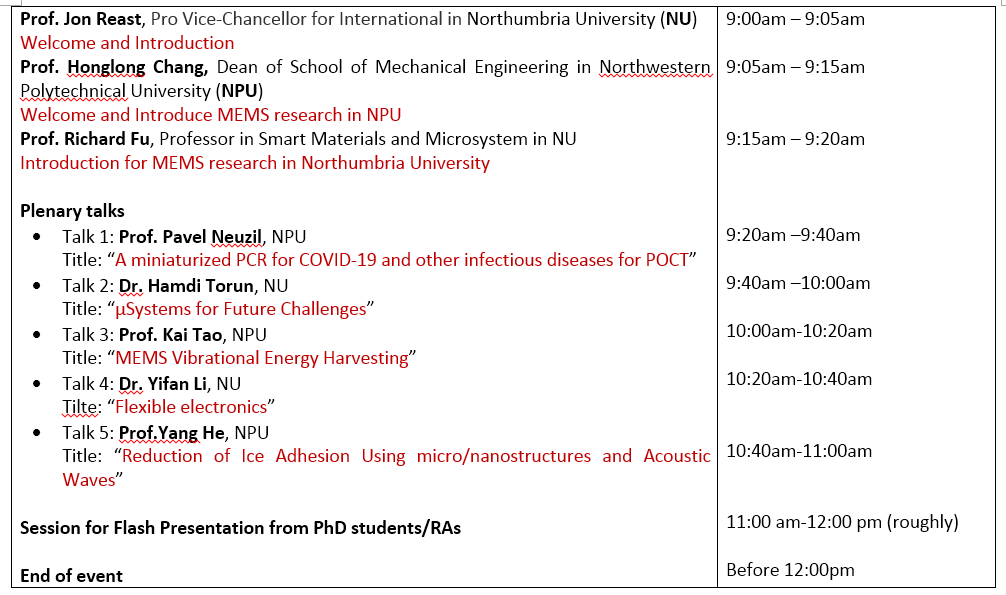

Invited Lecture 1
Title: A miniaturized PCR for COVID-19 and other infectious diseases for POCT
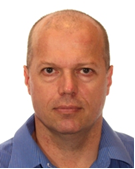

Speaker: ProfessorPavel Neuzil,NPU
Abstract:The centers for disease control need to monitor particular areas during infectious diseases outbreaks such as COVID-19. Point-of-care testing (POCT) can provide fast and cost-effective detection for pandemic disease thus connecting those via wireless network creates an ‘internet of things’ (IoT) for healthcare, an essential tool helping to tackle infectious disease outbreaks. I will present the development of a miniaturized system to perform polymerase chain reaction in real time (qPCR) for POCT. The system is based on a simple concept to perform cheap PCR with sample drops placed on a disposable glass slide in contact with a micromachined silicon heaters. The fluorescence monitoring optical systems were integrated with the temperature cycler making a truly lab-on-a-chip (LOC). The compact system with size smaller than a smartphone and with weight less than 100 g is capable of performing 40 PCR cycles in less than 6 min detecting fours samples a time. Once the qPCR is completed, the results including GPS coordinates are sent to control center using wireless network communication protocol. The miniaturized qPCR is also suitable for space applications as well as for educational purposes. During my talk, I will present our results on the detection of various viruses. Currently we are developing dual color qPCR system for more robust COVID-19 diagnostics as well as miniaturized digital PCR for noninvasive prenatal diagnostics.
Brief CV: Professor Pavel Neuzil isan expert in MEMS, nanotechnology, and microfluidic chip. As an outstanding researcher of NPU, he has more than 110 publications on Nature Reviews_Drug Discovery, Nature Medicine, Nucleic Acids Research, Angewandte Chemie, Nano Letters, Analytical Chemistry, Lab on a Chip, etc.
Invited Lecture 2
Title: µSystems for Future Challenges
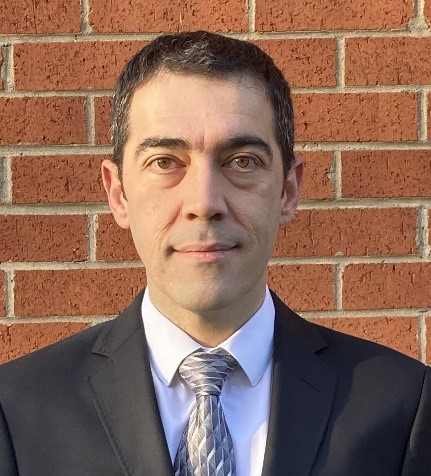
Speaker: Dr. Hamdi Torun, NU
Abstract:The focus of my research is in micro/nanoengineering to address key future challenges. I have been developing novel micro/nano-systems for various applications from biomolecular measurements and biosensor development to infrared imaging and terahertz detectors. In the first part of my talk, I will present our research on metamaterial-based microsystems. There is a critical need for non-invasive, quick, affordable, portable and accurate means of diagnosing critical and chronic diseases. In addition, long-term continuous monitoring systems for diseases and conditions such as diabetes promise significantly improved life quality. We have demonstrated our technology for sensitive measurement of biomolecules, concentration of blood glucose and for continuous monitoring of glaucoma. Among these applications, we have been able to commercialise our technology for glaucoma monitoring. We have developed a smart contact lens that incorporates a passive metamaterial-based sensor that is sensitive to strain on the soft contact lens.
In the second part of this talk, I will present our research efforts in probe microscopy. Advances in probe microscopes expand the capabilities of techniques used for biomolecular applications. Capability of imaging, sensing and manipulating single-molecules and single-cells allows researchers to probe fascinating biophysical processes. I will present a novel atomic force spectroscopy technique for biomolecular measurements at single-molecular level. We perform the experiments by manipulating the magnetic beads using an electromagnet against a stationary AFM cantilever. Keeping the cantilever stationary and performing the actuation electromagnetically via drastically miniaturized structures (using beads with a diameter of 2.4 μm) provide advantages for stability, dynamics and resolution. I will present the results of biomolecular pulling experiments using heparin-functionalized magnetic beads to probe the interactions of heparin-FGF2 interaction at single molecule level.
Brief CV: Hamdi Torun is an associate professor at Northumbria University, focusing on development of micro/nanosystems especially for sensing and imaging applications in Smart Materials and Surfaces Laboratory. Previously, he was an associate professor at the Department of Electrical and Electronics Engineering and affiliated with the Center for Life Sciences and Technologies at Bogazici University, Istanbul, Turkey. He is a co-founder and a board member of GlakoLens, a biomedical spinoff company.
He received his B.S. degree from Middle East Technical University, Ankara, Turkey, in 2003, his M.S. degree from Koc University, Istanbul, Turkey, in 2005, and his Ph.D. degree from the Georgia Institute of Technology, Atlanta, USA in 2009, all in electrical engineering. He was a postdoctoral fellow in the Department of Mechanical Engineering, Georgia Institute of Technology during 2009-2010.
He received Technology Award from Elginkan Foundation, Turkey in 2016, Young Scientist Award from The Science Academy, Turkey in 2016, Innovator Under 35 Award from MIT Tech Review in 2014, and Marie Curie Fellowship (MC-IRG Grant) in 2011.
Invited Lecture 3
Title: Micro Electret Vibrational Energy Harvesting

Speaker: Professor Kai Tao, NPU
Abstract:Recent advances in embedded autonomous wireless sensors and low-power electronic devices have led to the rapid emergence of micro-scale energy harvesting technologies. Such harvesters may pave the primary step forward to actualizing of self-autonomous devices and performing of intelligent monitoring activities. However, the state-of-the-art micro energy harvesting encounters mainly two challenges, narrow bandwidth issue and low output performance. Electret-based electrostatic vibration energy harvesters (e-VEHs) are explored in this talk as they are advantageous in terms of silicon CMOS compatible process, long-term stability as well as great flexibility via the capability to design the mechanical and electrical features separately. This talk will report our recent work on electret energy conversion principle and frequency broadening mechanisms, micro/nano manufacturing and performance enhancement methods, and self-powered sensing and energy harvesting applications. This work pushes forward a significant step of realizing micro electret energy harvesting technologies in real-world applications.
Brief CV: Kai Tao received his B. Eng. and M. Eng. in Microelectronics from Central South University in 2009 and Shanghai Jiao Tong University in 2012, respectively, and Ph.D. degree from Nanyang Technological University in 2016. He worked as a postdoctoral research associate/fellow with Singapore-MIT Alliance for Research and Technology project from December 2015 to February 2017. He is currently working as an associate professor with the Department of Mechanical Engineering at the Northwestern Polytechnical University. His research interest includes NEMS/MEMS fabrication, micro energy harvesting and self-powered MEMS devices. He has authored and co-authored 4 book/ book chapters, more than 70 technical papers including 36 journal articles. He serves as reviewers for more than 40 SCI journals and general/session chairs for IEEE INEC, IEEE/ASME AIM and VEH2020 international conferences.
Invited Lecture 4
Title: Bio-inspired Micro-Electro-Mechanical System (MEMS) based Transducers
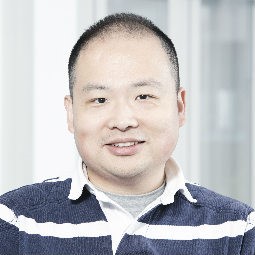
Speaker: Dr. Yifan Li , NU
Abstract:Bio-inspired engineering systems have played an important role in human development history. In recent years, our research group has developed bio-inspired micro/nano transducer systems, enabling advanced functionalities.
In this talk, two research topics will be discussed, before linked together:
• Bio-inspired smart surfaces induced droplet microfluidics, for Lab-on-Chip applications
• Bio-inspired soft functional materials microengineering for mechano-responsive sensing and actuation on super-flexible substrates
Brief CV: Dr. Yifan Li is an Associate Professor in Mechanical Engineering at Northumbria University (Newcastle, UK) where he joined as a Senior Lecturer in 2014, having been a Research Fellow at the University of Edinburgh (UK) where he also gained PhD in Microsystems in 2008. This followed his BEng obtained from the School of Electrical and Electronics Eng. at Shanghai Jiao Tong University in 2003.
Dr. Li’s key research interests are integrated MEMS systems through post-CMOS processing, droplet microfluidics, soft material microfabrication, flexible electronics and transducers with recent outputs in prestige journals e.g. Nature Communications, Adv. Func. Mater., Nano-Micro Lett., Sen. Act. B: Chemical, Progress in Mater. Sci., etc.
Invited Lecture 5
Title: Reduction of Ice Adhesion Using micro/nanostructures and Surface Acoustic Waves
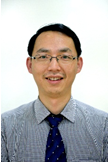
Speaker: Professor Yang He, NPU
Abstract:Ice accumulations on aircrafts can cause serious damages, which result in severe accidents and large economic losses. Traditional anti/de-icing methods such as deicing fluids, resistance heating, hot air and gas expansion suffer from large load, high energy consumption and environmental unfriendliness. The essential of anti/de-icing is to reducing the ice adhesion, which leads to two different paths: passive and active methods. Micro/nano structure as a passive anti-icing surface and surface acoustics waves (SAWs) as an active method are explored in this talk separately. This talk will report our work on the wetting behavior of micro/nano structures and its benefits in reduction of ice adhesion. The original idea of using SAWs effects for deicing as well ae its deicing mechanism will be discussed. The anti/de-icing skin on aircrafts combining both passive and active methods will be introduced. This work offers novel paths of anti/de-icing methods and they all have reliable application prospects in fields like transport planes, helicopters, high-speed trains and wind turbines.
Brief CV: Prof. Yang He received his B. Eng., M. Eng. and Ph.D. degree in Mechanical Engineering from Northwestern Polytechnical University in 2002, 2005, and 2011, respectively. He is now working on the MEMS fabrication and anti-icing technology towards aircrafts in the Department of Microsystem Engineering at the Northwestern Polytechnical University. He has won one first-class Science and Technology Award in Shaanxi Province, and two first-class Science and Technology awards in China's machinery industry.